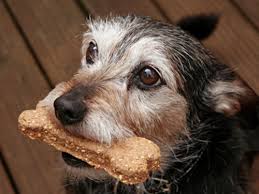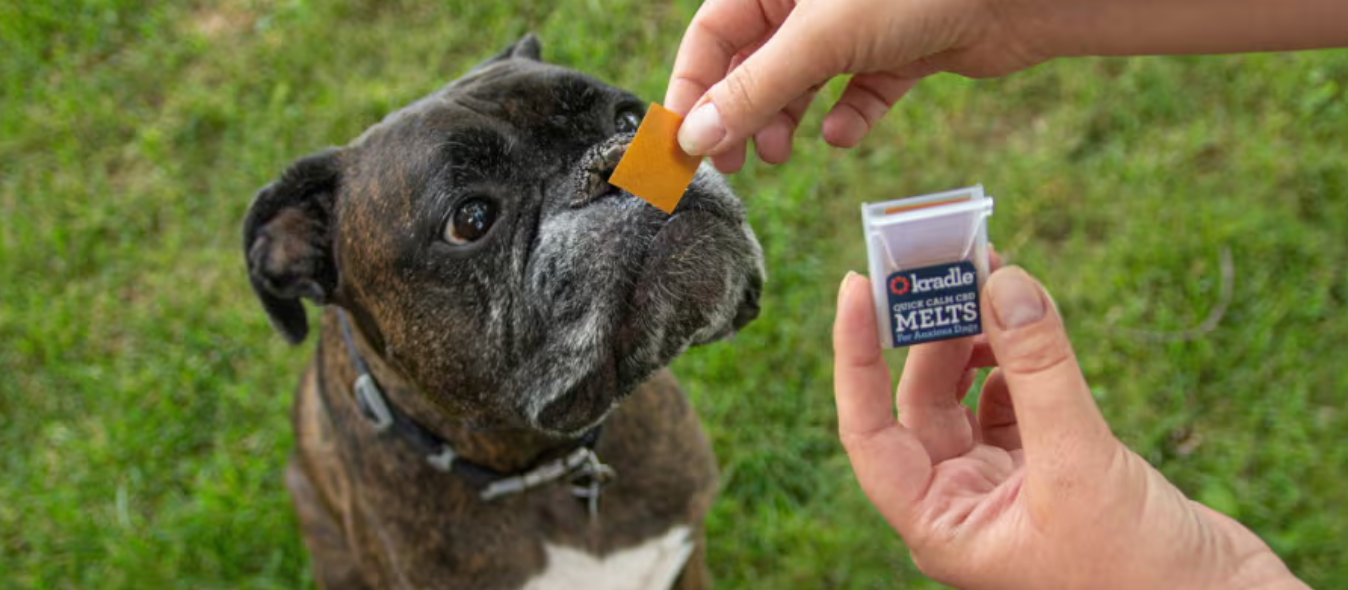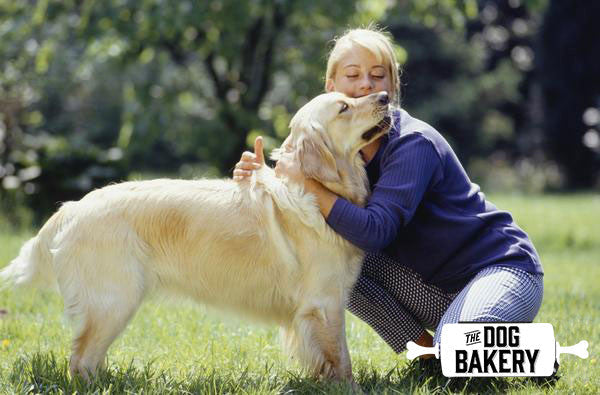Admit it, you've never met a dog that didn't like treats. And who can blame them? Even we humans enjoy a tasty treat from time to time – even if our treats are very different from theirs. Or at least, we hope they are. And just because Fido can't have ice cream or Oreos, it doesn't mean he can't have something tasty and good for him too.
 There is an endless variety of dog treats on the market, and while you want to make sure you get something your dog enjoys, you should be aware of what's in those treats as well. You may remember that there have been a number of recalls within the last few years involving jerky treats with ingredients sourced from China, for instance. Knowing what's in your dog's treats, as well as where these ingredients come from, is very important.
There is an endless variety of dog treats on the market, and while you want to make sure you get something your dog enjoys, you should be aware of what's in those treats as well. You may remember that there have been a number of recalls within the last few years involving jerky treats with ingredients sourced from China, for instance. Knowing what's in your dog's treats, as well as where these ingredients come from, is very important.
 But I know, it can all be a bit confusing for someone who doesn't know what they're looking for. And that's why we're here to help. Hopefully this article will give you some insight into what kind of dog treats are best, when you should use them, and how many you should give your furry friend. After all, just as with cake and ice cream for humans, too many treats can cause problems of their own for your dog.
But I know, it can all be a bit confusing for someone who doesn't know what they're looking for. And that's why we're here to help. Hopefully this article will give you some insight into what kind of dog treats are best, when you should use them, and how many you should give your furry friend. After all, just as with cake and ice cream for humans, too many treats can cause problems of their own for your dog.
 First things first though. You should always look at the ingredients in your treats. If at all possible, find brands that are made in the United States, and avoid any that source their ingredients from China. Also, due to the potential for allergies or reactions, the more natural the product the better. Just like with human food, a whole lot of fillers aren't healthy.
First things first though. You should always look at the ingredients in your treats. If at all possible, find brands that are made in the United States, and avoid any that source their ingredients from China. Also, due to the potential for allergies or reactions, the more natural the product the better. Just like with human food, a whole lot of fillers aren't healthy.
Fillers include ingredients like corn, wheat, or soy which some dogs have trouble digesting properly. Also, anything that adds in sugar, salt or artificial flavors should be used sparingly, as these ingredients can also cause reactions in dogs, just like they can in humans.
See, in many ways we're not that different than dogs, are we? It makes buying food or treats much simpler when you think about it like that.
So knowing that, what are your options for healthy, but tasty treats?
If you're training, you should look for small, soft treats that the dog doesn't have to spend a lot of time chewing. Just a quick little bite so they're ready to continue training without much distraction. The Dog Bakery Dogstreat Mini's are great for this, and they come in two great flavors - Peanut Butter Kisses and Cup O Bones . These are also great for small mouths even when you're not training by the way! If you have a medium-sized or large dog, and you're not training, you may want something more substantial to give as a treat. There are many great soft and crunchy treats out there on the market, but again, you'll want to be mindful of the ingredients and always include treats as part of a healthy diet, not as a replacement for high-quality kibble. Many dogs enjoy peanut butter, just like we humans do, and it's why you'll find it in a number of treats such as this one from The Dog Bakery. And for the dog that enjoys meatier treats, these bars also come in chicken.
There are other treats which last longer, perhaps giving your dog something to do while you're away (you know, other than destroy your house). Freeze-dried or jerky treats fall into this category, as well as dental chews, pig ears, and other bone-like treats. It's best to be cautious with treats like these. Not that they're all bad, but before purchasing any kind of jerky treat, do some research about any possible recalls and find a brand with high standards when it comes to ingredients.
For treats that are meant to be chewed like dental chews and bones, you also need to watch out for the dog ingesting large pieces they may happen to gnaw off. Many owners believe that if it's made for a dog, it's automatically safe for them, but that's not necessarily true. Many of these specifically say that these treats aren't meant to be eaten, and that you must supervise your dog so you can remove the treat if they happen remove large chunks. The reason for this? These large pieces don't digest easily like food would, and can lead to blockages within the dog's gastrointestinal tract. A blockage is a life-threatening emergency, and not something to take lightly. For heavy, hardcore chewers, it's best just to avoid these types of treats completely, and always supervise even the gentlest of chewers just to be safe.
Also, anything too hard can damage your dog's teeth, especially if they're an aggressive chewer. So be aware of that when picking out treats for your pooch.
Or just give your canine friend a resilient toy with some Peanut Butter frozen inside. It'll keep them busy for hours and you don't have to worry about blockages!
You may be asking, “What about giving my dog human food as a treat?” and yes, there are some human foods you can safely feed your dog. However, I urge you to be very careful when it comes to giving them food off of your plate – no matter how adorable they make look. You dog may love bacon and hot dogs, but these things can cause health problems down the road including pancreatitis (which can be fatal and can occur with even a small amount of human food). Also, some of our favorite foods are toxic to dogs including grapes, raisins, chocolate, onions, nuts (except peanuts, they're legumes actually), and anything with caffeine.
Instead, stick to fresh fruits and veggies like carrots, raw green beans, banana slices and even pieces of watermelon (without seeds). These are also low in calories – which leads us to our next point.
As far as how often you should give treats, the general rule is that treats should not make up more than 10% of a dog's calories in a given day. You may need to consult with your vet to get a specific number since each dog has different caloric needs.
Remember, just like humans, dogs need to get most of their nutrients from real food, and treats should be a sporadic thing. Just like we can get sick from having too many cupcakes, dogs can develop tummy issues (and other problems such as malnutrition) if their diet is focused more on treats than it is on quality kibble.







